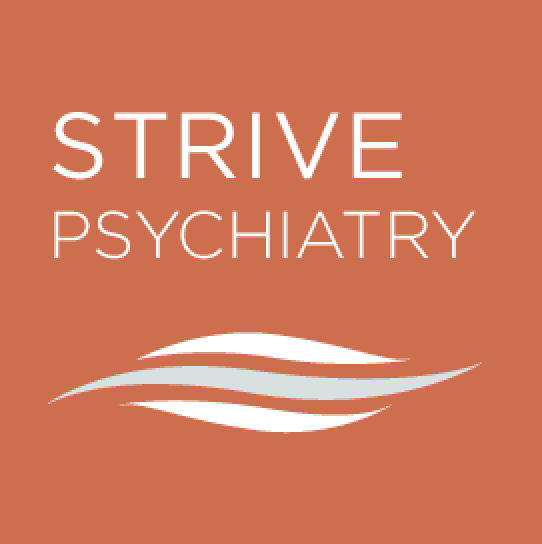Antidepressants are the first line of defense in fighting depression. While they have proven effective in treating depression they don’t work for everyone. Some people struggle with side effects. Other times, patients may not respond to treatment when using antidepressants. When this happens, alternative therapies, such as TMS Therapy, should be considered as an alternative solution.
Transcranial Magnetic Stimulation (TMS) Therapy is a groundbreaking treatment for Major Depressive Disorder. People who are candidates for TMS therapy are patients who take anti-depression medication and have struggled with the side effects or have failed to see results. It isn’t a solution for people who haven’t already tried medication. Continue reading to learn if TMS may be the right treatment for you.
Downsides to Antidepressants
Antidepressants can be an effective tool in treating Major Depressive Disorder, but they are not without their drawbacks. Like all medications, there are some side effects. Most antidepressants fall into the category of selective serotonin reuptake inhibitors (SSRI). As many as 40% of patients taking SSRIs will experience side effects during the course of treatment.
Physical Symptoms
Side effects can vary from patient to patient. Physical symptoms are usually among the first side effects to present during the course of treatment. Everyday Health lists some of the physical symptoms that may be present, stating, “When you first begin antidepressant treatment, depression medication side effects can be physical symptoms like headaches, joint pain, muscle aches, nausea, skin rashes, or diarrhea. These symptoms are usually mild and temporary.” A study published in the journal, Clinical Therapeutics, looked at more than 40,000 people who had recently started on antidepressants. The most common early side effects of these meds were headache and nausea.”
Sleep Disturbances
Other symptoms may also arise during treatment. Sleep disturbances are a common side effect of antidepressants. These may include insomnia, nightmares, and sleepwalking. A study published in Frontiers in Psychiatry found that 22.3% of patients taking an SSRI experienced sleep disturbances. Patients may also experience fatigue during the day as a side effect of antidepressants.
Migraines
Another side effect that may be experienced is migraine headaches. Migraine medications and SSRIs both increase serotonin levels, so caution should be used when taking migraine medication in combination with antidepressants.
Weight Gain
Weight gain is yet another common side effect of SSRIs. While some antidepressants are more likely to cause weight gain than others, the possibility exists with all of them. As many as 25% of patients taking antidepressants gain weight while on the medication.
Increased Risk of Suicide
SSRIs can also increase the risk of suicide. If you or a loved one are taking an SSRI and begin to experience suicidal thoughts reach out for help immediately.
Sexual Dysfunction
Sexual side effects are also common among patients using SSRIs to treat their depression. Up to 60% of patients experience some sort of sexual dysfunction such as low libido, delayed ejaculation, or the inability to experience orgasm.
Ineffective
Another drawback of SSRIs is the fact that some patients are resistant to the medication. Even when taking an antidepressant, these individuals don’t experience relief from their symptoms. PsychCentral featured an article on the drawbacks of SSRIs in which it states, “It’s actually not uncommon for the first treatment to be unsuccessful. In fact, about 40 to 50 percent of people don’t respond to the first antidepressant they’re prescribed, according to Jonathan E. Alpert, M.D., Ph.D., the associate director of the Massachusetts General Hospital Depression Clinical and Research Program and co-founder and co-director of the Depression and Anxiety Group Practice.”
Benefits of TMS Therapy
If a patient has tried traditional treatments, such as SSRIs, and has experienced the downfalls of antidepressants firsthand, it may be time to look into alternative therapies. TMS can provide a safe and effective treatment option for patients living with major depressive disorder.
TMS Therapy has Mild Side Effects
Transcranial Magnetic Stimulation is FDA approved as a treatment for depression. It has far fewer side effects than SSRIs. When a patient does experience side effects, they are typically very mild. “Research has shown that TMS produces few side effects and is both safe and effective for medication-resistant depression. The most common side effect associated with TMS therapy is temporary pain or discomfort at or near the treatment site during treatment. When this occurs, it is temporary, and typically occurs only during the first week of treatment.” – Huntsman Mental Health Institute.
High Success Rate
TMS has a high success rate. In patients treated using TMS therapy, two-thirds experienced an improvement in symptoms, with 37% of patients experiencing full remission of their depression. These statistics prove that TMS can be a powerful tool in treating major depressive disorder.
TMS Therapy combines Traditional Therapies
Additionally, TMS can be used in conjunction with traditional therapies. Some patients find that a combination of antidepressants and TMS are effective in treating depression. Your doctor will help you determine what treatments are right for you.
Covered by Major Insurance Companies
All the major insurance companies cover TMS Therapy. Our staff at TMS Center of Utah will gladly help you review your insurance plan to determine what your out-of-pocket cost will be.
Find Out If TMS Therapy Is Right for You
If you or a loved one have experienced side effects while taking antidepressants, or are just not seeing results, it may be wise to investigate alternative therapies, such as TMS. For further questions contact Strive TMS by calling:
801-494-1922 (Utah Residents)
702-291-2967 (Nevada Residents)

